We continue the League of Pros series – stories of people who work in our football and make it better.
We talked to the Spartak Moscow chef Vyacheslav Mulchenko. He started working as a chef in his native Berdyansk, and moved to Moscow at the age of 18. Mulchenko is the main person in the kitchen not only at Spartak, but also with the Russian national team, where he came even earlier than to the Moscow club.
“Cooking takes up my entire life”
"When it was necessary to choose a profession, I realised that what I like is cooking; I just like to cook. I didn't think about working in any other field. Now I don't even have free time for other interests, because cooking takes up my entire life.
“I was born and raised in Berdyansk. When you spend your entire childhood in one city, you choose from those educational institutions that are close by, and there was not a lot of variety, especially compared to Moscow. I decided that a vocational school would be the best option for me. My first practical experience took place in an ordinary recreation center located on the sea, then during my studies I spent time at a meat processing plant, a confectionery factory, and a restaurant. It is important to try to absorb everything and not to sit in one place. The more you gain knowledge, the more you will need it.
“Chefs are assigned grades for studying and practice; it all depends on the educational institution. In our school, they gave a maximum of four, and to reach the highest grade – six – then you needed to go to university. But I was never asked about my rank anywhere. Apparently, no one looks at them now.
“I finished school at the age of 18, then moved to Moscow and studied at the Institute of Management and Law as an accountant. Then it was fashionable to get an economic and legal education, but I later realised it wasn't for me. The first year I studied with interest, but I finished without much enthusiasm. At the same time I was already working as a chef in a bar.
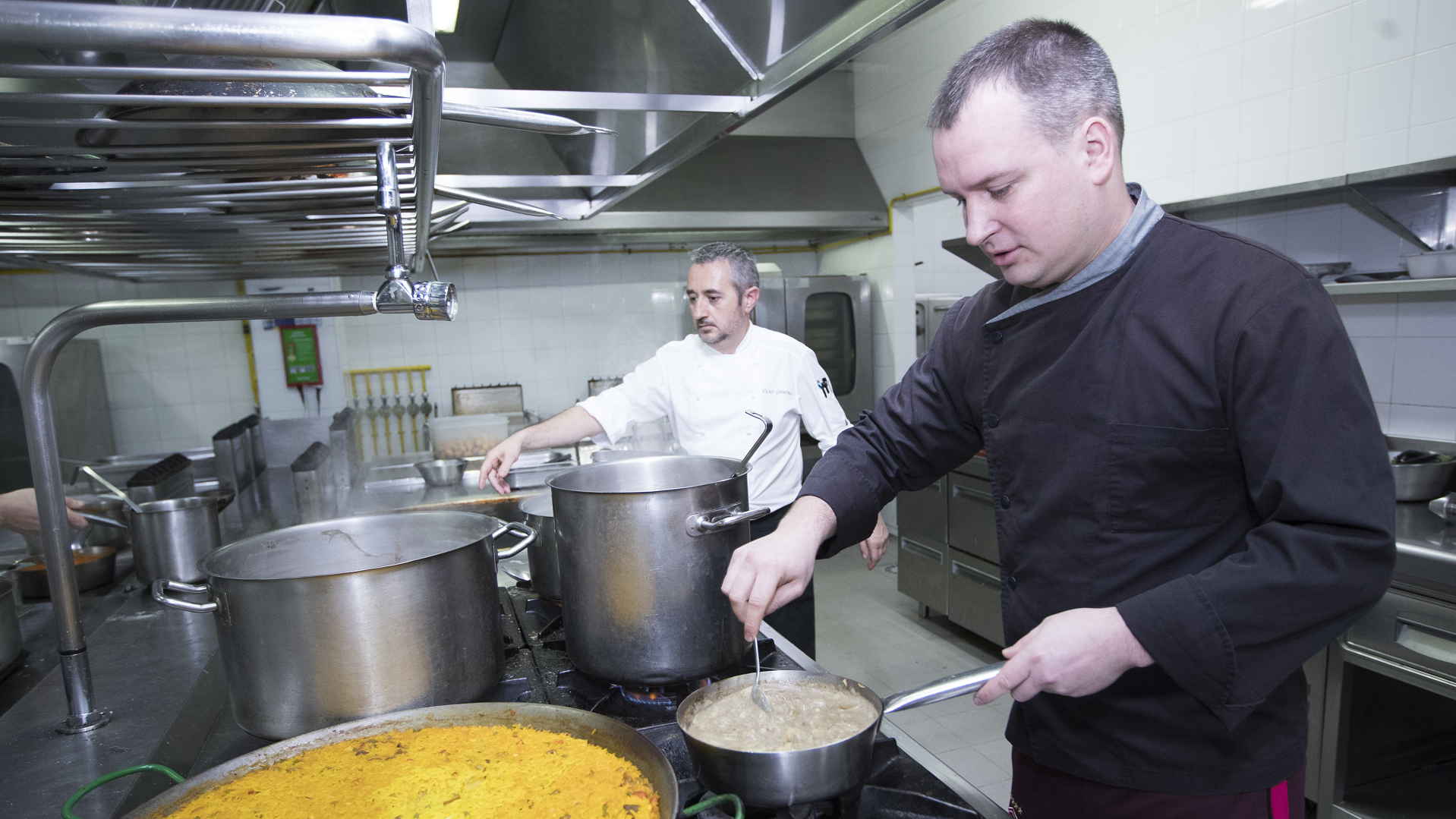
“Capello liked everything and I stayed with the team”
“In 2012, when I was working in a Moscow restaurant, I was recommended to the head of the medical staff for the Russian national team, Eduard Bezuglov. At that time, I didn't watch much football and didn't support anyone; I just played in the yard, like all ordinary people.
“Bezuglov and I talked on the phone, then met at the Russian Football Union office. Then I met with the team's manager, Evgeniy Savin, and manager Oreste Cinquini. I was given all the requirements that the new head coach Fabio Capello wanted to see. He initially asked me to appoint a responsible person for each position. I didn't even need to be persuaded to take the job. I wanted to discover something new for myself, and I thought: ‘Why not try it?’
“In a football team, the chef has very different tasks than in a restaurant. For example, I have to solve a lot of organisational issues, such as preparing meals, monitoring how and what the players eat, and ensuring that the guys get the best. If there is a problem, you need to solve it quickly, so that nobody even realises something was wrong. We need to do everything to the highest standards.
“I went to work at the first training camp after Euro 2012 held at the Saturn training ground as a trial period. The training camp lasted for several days, and after that I started working full-time with the national team. Then it was necessary to make a quick decision. I was told about the basic requirements, and I presented what I could prepare for them. Capello liked everything, and I continued working.
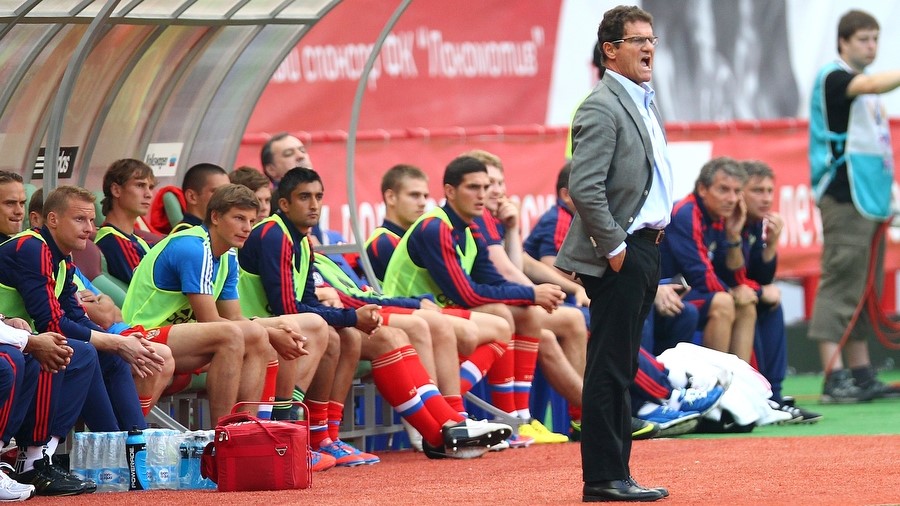
“I was not particularly nervous during the training camp, but I wanted everyone to like my plan, I wanted to get what the coach and doctor needed, and to have everything prepared correctly. We didn't have any complicated dishes: everything was fresh, with minimal calories and fat content. The players liked it.”
“At Spartak I am fully engaged in nutritional organisation”
“At first, I doubled up working in a bar with my role at the national team, which doesn’t meet so often – about six times a year – so I was allowed to combine them. Two years later, I left the restaurant and was offered a job at Spartak. By then the head coach was Murat Yakin. He needed someone who would always travel with the team, which is standard practice in Europe. The club only had chefs who worked at the training ground, so they invited me.
“At away matches, teams always settle in different hotels, and everything is different there: the staff, the kitchen, the restaurant, the hall. Before arrival, we send a menu that contains our requirements and notes. I arrive in advance to personally check our requirements have been met, once again discuss everything with the management, and then I work with them.
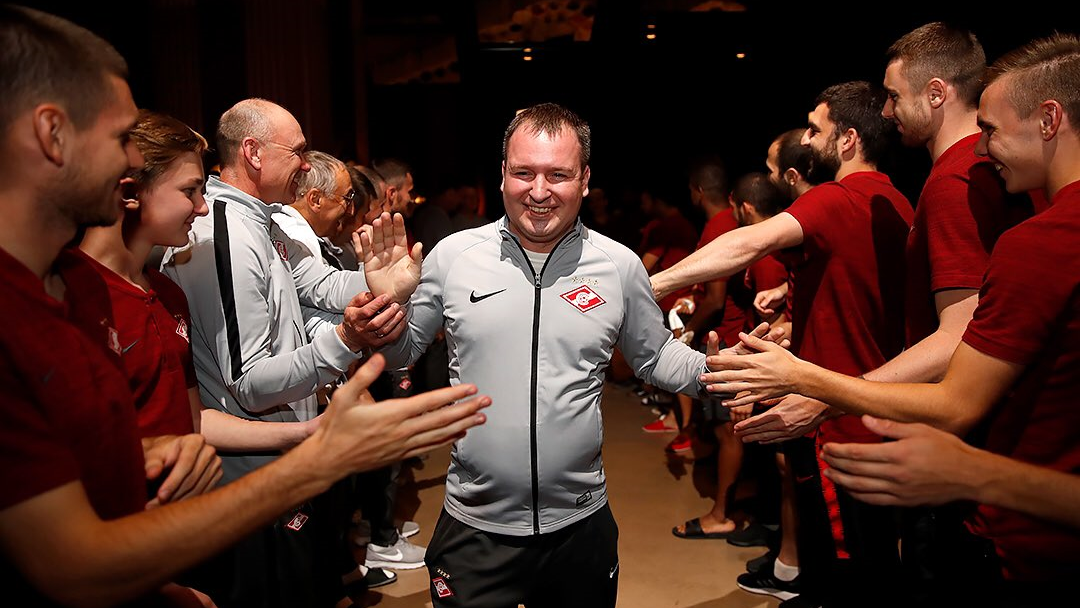
“There are certain differences in the requirements of the coaching and medical staff at Spartak and the national team, but they are marginal. It is clear that because of this dual role I sacrifice a lot. As I have already said, there is no time for other interests. It happens that after the national team, you immediately go to work at the club and do not even have time to rest. At most you get one day off, and then it will be spent on preparation, correction, and work calls.
“At Spartak, I am fully engaged in catering. Everyone comes to me: if something is good, they will praise me, if it is bad, I will be guilty. Not only chefs work with me: delivery staff, dishwashers, managers; all in all, there are 12 people. The menu itself is prepared by six chefs.
“In the kitchen, each person is assigned to a specific role. This way they will do their job better than doing everything at once. For example, if one makes salads, why would he go into the hot station to cook meat and fish? If another person works as a pastry chef, then they should make their own products. If they are constantly engaged in food preparation, then they do it well. Each person chooses what is easier for them to work with; this is personal.
“We have an international cuisine, you can not focus on one”
“I always discuss the menu with the head of the team's medical staff, and the coach can suggest some adjustments. If something is wrong, we try to fix it immediately. We do not have time to argue, it is not generally the done thing in our profession. It happens that the food is well prepared, but someone doesn’t eat well; then we can replace something, approve it and close the matter.
“Every year we adapt more and more to international trends. Now, for example, it’s fashionable to have dishes without fibre, cereals, but with carbohydrates. When Domenico Tedesco came to Spartak, he did not see the need to urgently change anything in terms of nutrition. On the contrary, he said that everything was fine. Despite his age, which is quite young for a coach, Tedesco has already worked at big European clubs and it’s clear he knows how everything should be organised.
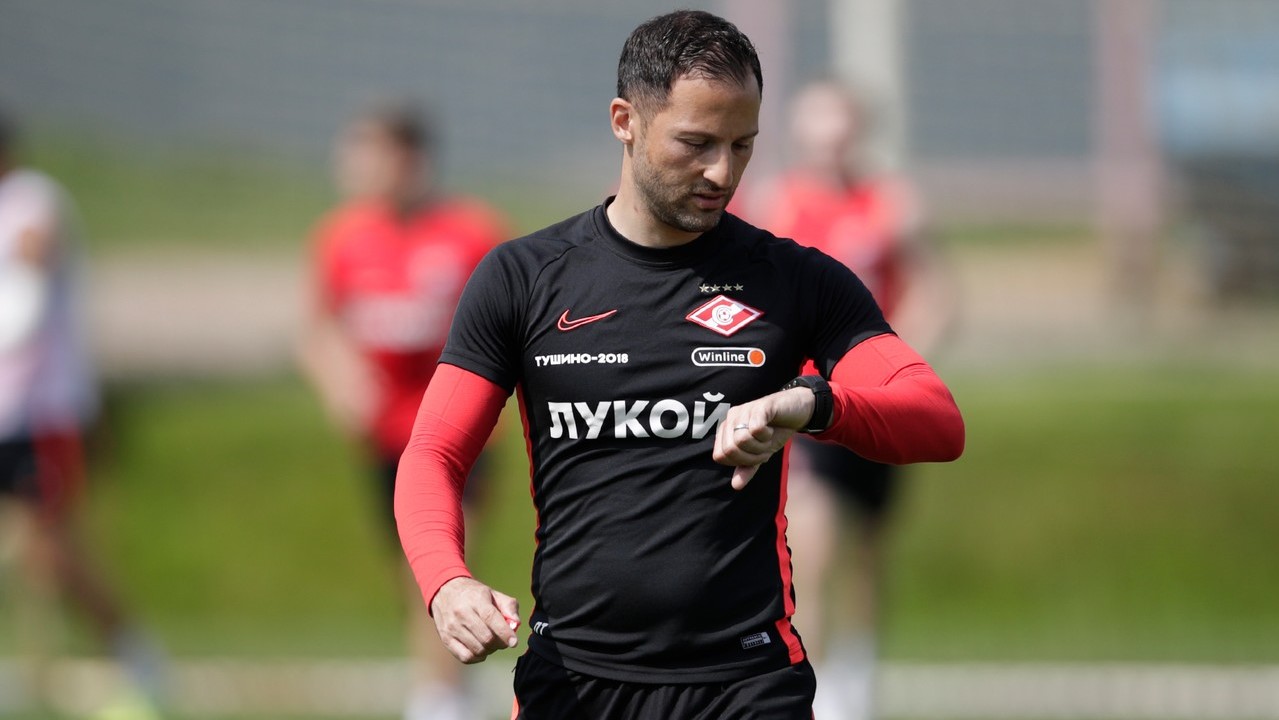
“Previously, I was responsible for nutrition throughout the entire Spartak system: the main squad, the reserves, and the youth team. Now I always work only with the main squad, because they are now based near Otkritie Arena. The Tarasovka training centre has its own chefs and managers who work with the rest of the players. They have the main menu, the rest is adjusted by doctors and trainers.
“We have an international cuisine on the menu, so you can't focus on just one. If you go to any restaurant now, everything is mixed together. For example, we prepare both Russian and European soups: one with meat or fish, the second with vegetables or it’s a cream soup. We make classic dishes so that people think less about what they are eating. If it is healthy and delicious, they will still eat it, and then it is a matter of principle and taste. It is clear that all foreigners like foreign food, and Russians like Russian food, but now the choice is very large.
“We always make a varied menu. Even if a person has an allergy, they always have a different choice so that they can replace something. For example, for pasta alone there three types: gluten-free, wholegrain and regular, and the same with rice. Vegetables are cooked both baked and boiled, meat, poultry and fish dishes have four or five variations, while there are many different salads and fresh fruits. In other words, the choice is very large.
“Fortunately, we don't have a divided menu at the moment. In recent years we have been serving a buffet. We try to find products as best as we can and serve them in good quality, so that people can always choose. We can't please only the tastes of one player. There are certain requirements for the menu of football players, and we try to present it as widely as possible, so that people do not say that they have nothing to eat, even if they have some kind of diet. If you really need to cook something separately, we can do it without any problems, as long as it is not harmful. This happens, but very rarely.
“What the first person sees must remain for the last.”
“I try to get to work an hour and a half before breakfast. It’s usually at eight in the morning, and lunch is before three in the afternoon. Some come to breakfast earlier, some later than the rest, and you need to be prepared for this. All people are different, but you have to wait for everyone, and the food must stay fresh. The main thing is that the set of dishes that the first person sees remains for the last one – there should be no differences.
“It also depends on the amount of training. If there is one session, we prepare breakfast and lunch, if there are two we add dinner. Then my work ends at eight o'clock, and on other days at four. And this is almost every day; there are very few days off, it is lucky if there is one during the week. It will be especially difficult now with the team starting two matches a week, and although we are not used to it, we are always ready.
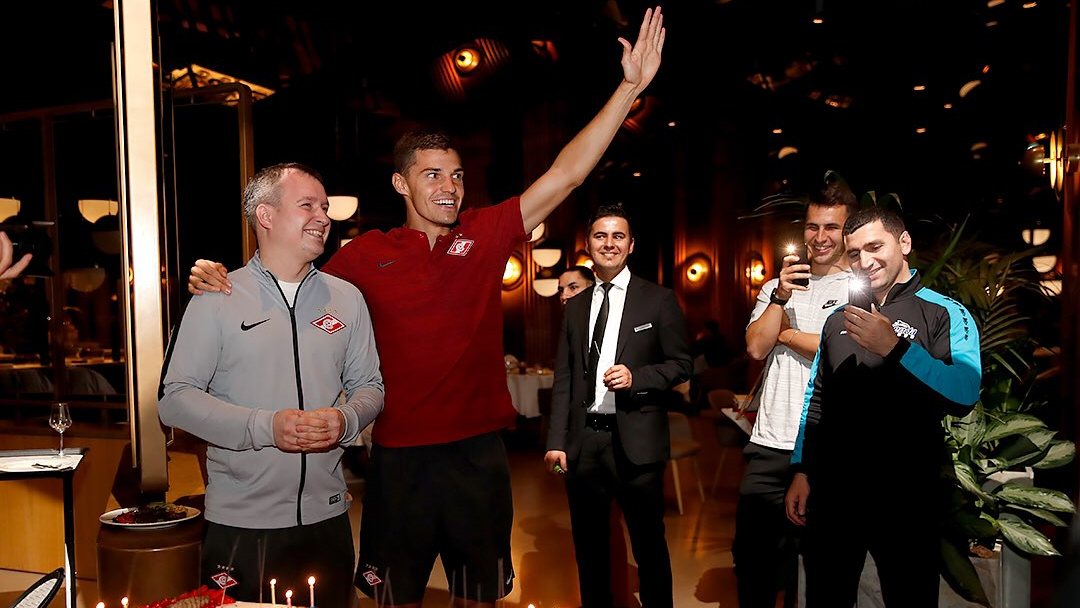
“Our job is not only to prepare meals, but also to prepare the dining room. First of all, everyone looks at it. When you come to a restaurant, you say thank you to those who meet you and serve you, and you also tip them. Visitors don't say: "Oh, your dishes are so clean, give money to the person who washed them." You give the money to the waiters, but it doesn't reach the chefs. Guests only see what is on the surface. I do a lot to make everything beautiful and high-quality outside, in addition to what I cook. The first impression occurs when you see how everything is cleaned, served, what is on the table: which spices, napkins, appliances and glasses.
“I watched matches pitchside, then stopped – I start to get nervous”
“Game days are similar to normal ones, only with more nerves. Everything should be clear, correct, and without any complaints. The players should just eat and think about the game, and not about food: "Oh, this is a little unsalted, and this a little undercooked, or overcooked." There are a lot of people: some like food to be completely dry, while others prefer it to be juicier. We need to make sure that no one feels dissatisfied.
“I used to watch matches from pitchside, but then I stopped; you start to get nervous and worry too much. So I watch from the locker room. When the national team plays, we put dry rations out, and then make sure that the players have tea and coffee. At Spartak, the players eat at the stadium after their home matches. The same team of chefs cook there as on training days. The menu is no different from the usual, such as pasta, poultry, or fish.
“Working in football is quite different from working in the restaurant business, and I'm more interested in it. You always go somewhere, you are with the team, and you are not locked between four walls. For players, the main thing is that it is delicious and high-quality. They go to a lot of places and have a great gastronomic outlook. So I try to do what is prepared in restaurants and introduce some trends. The world of cuisine is constantly developing. You can’t stop and say that we are cooking now like in the 1990s. If there is nothing new, discomfort begins, but new items must be within certain limits.
“When the team goes anywhere, I arrive at the place a day earlier, and sometimes I can go to a restaurant, see everything there and try something. I go to the kitchen, see what is being prepared there, and based on this experience I can implement something and test out whether it will come in or not. However, in sports nutrition, you will not be able to walk around much. It is possible to make surprises, but it is a risk – there are enough restrictions.”
Photo: Alexander Stupnikov/Spartak, Mikhail Shapaev/RFU





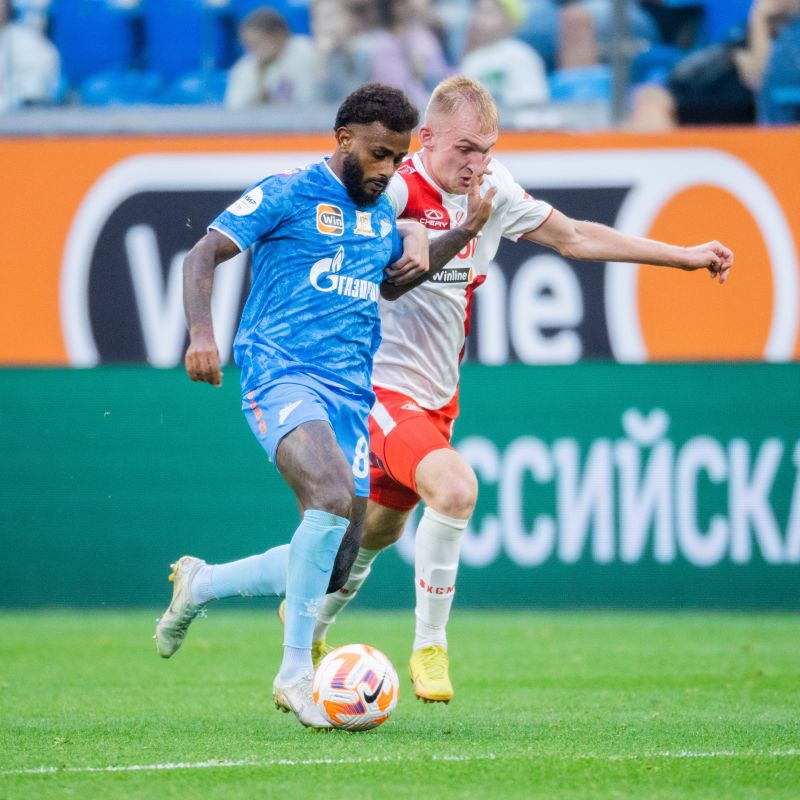
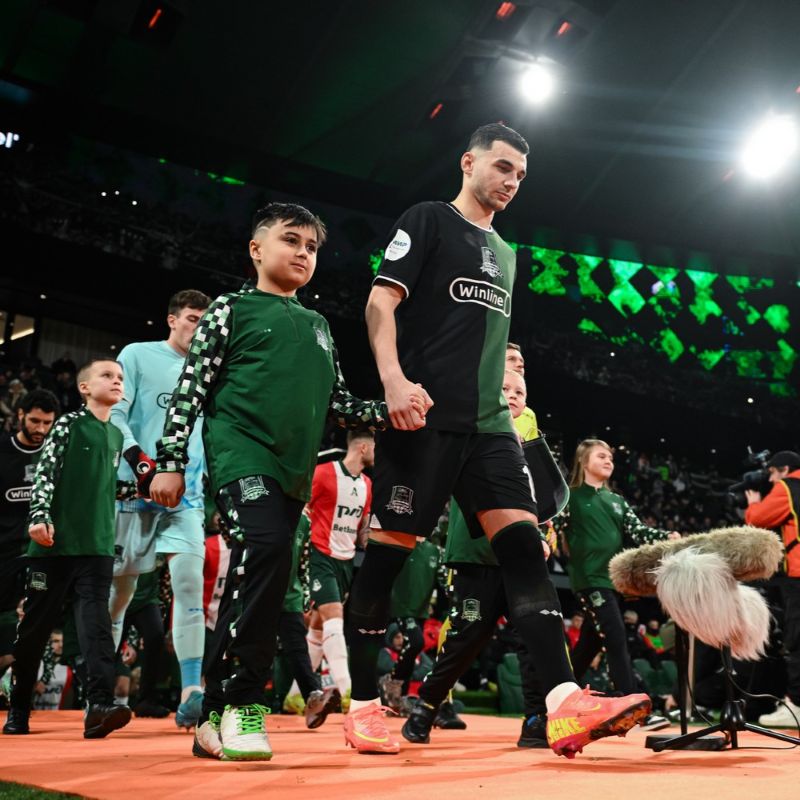
Обратная связь
Вы можете обратиться в РФПЛ с интересующим Вас вопросом или оставить сообщение (пожелание, замечание). Также вы можете сообщить имеющиеся у вас сведения о "договорных" матчах.